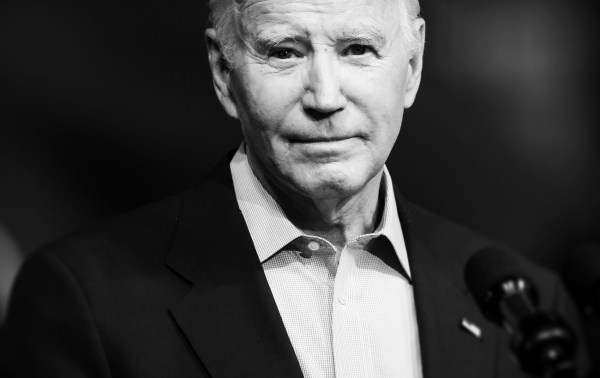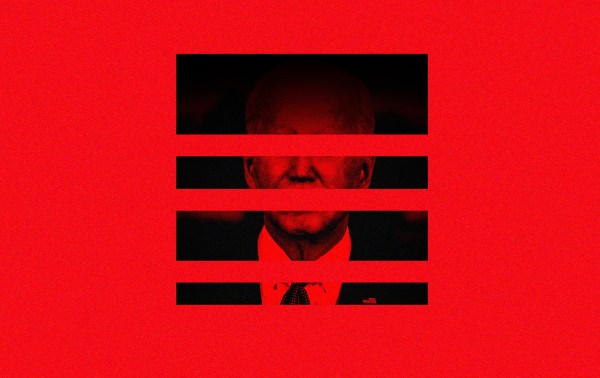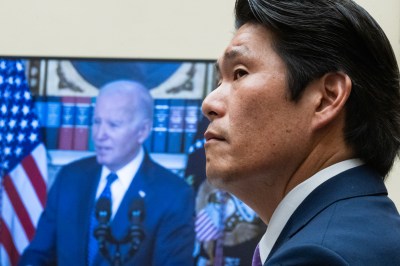Despicable. Outrageous. A smear.
That’s how Senate Democrats described special counsel Robert Hur’s February 2024 report on President Joe Biden, in which Hur described Biden as “a sympathetic, well-meaning, elderly man with a poor memory.”
More than a year later, the Hur report—in which the prosecutor explained why he opted not to charge Biden with classified records violations—has come back into focus with the release of the new book Original Sin: President Biden’s Decline, Its Cover-Up, and His Disastrous Choice to Run Again. The Dispatch's Michael Warren and Steve Hayes noted earlier this week that the release of the book and audio recordings of the Hur-Biden interviews is a vindication of Hur. Original Sin is “an authoritative, detailed, and devastating account of one of the most consequential scandals in modern American history,” Hayes wrote, and a section on Hur is “the most powerful part of the book.”
Hur’s description of Biden was not only accurate—as Biden’s devastating performance at the June 2024 presidential debate with Donald Trump and subsequent decision to drop out of the race would reveal. It marked the last potential opportunity for Democrats to push out the president with time for a new candidate to run a real campaign. But rather than take that difficult but wiser path in February 2024, congressional Democrats circled the wagons around Biden.
In the Capitol this week, The Dispatch asked a number of Senate Democrats if they had any regrets about how they reacted to Hur’s report or thought they owed him an apology. None did.
“It is outrageous the way [Robert Hur] disrespected and maligned the president,” Sen. Tina Smith of Minnesota said in February 2024. “What he said about the president not remembering the death of his beloved son [Beau] is just so despicable.” Hur reported that Biden was unable to recall the date of Beau Biden’s death by “several” years, and audio of the Hur-Biden interview confirmed the president said that Beau, who died in 2015, had “either been deployed or is dying” in the 2017-18 timeframe.
Given all that we know now, does Smith regret her comments? “At the time, I had been around the president, and in the times I had been around him, he appeared to be functioning well and was on top of it, so that’s what I thought at the time,” Smith told The Dispatch in the Capitol this week. Does she think Hur deserves an apology? “That’s just the way it rolls,” Smith replied.
Virginia Sen. Tim Kaine said in February 2024 that Hur was a “grandstander not a prosecutor,” adding that he expected Biden would be “very vigorously engaged” when the campaign heated up. In the Capitol this week, Kaine told The Dispatch: “I had one interaction with Joe Biden in the last 18 months, and it was the State of the Union. And he was fantastic.” He said he didn’t owe Hur an apology because he had included information “extraneous to his report.”
As Hur explained at the time, he needed to include in his report his rationale for why he declined to prosecute Biden on the documents charges—and his rationale relied heavily on his belief a jury would not convict a man with Biden’s apparent memory problems. Former Obama administration official Tommy Vietor posted on X earlier this week that the book Original Sin caused him to reevaluate his February 2024 attack on Hur. “I found the context about the Hur report to be some of the most interesting/revelatory information in ORIGINAL SIN,” Vietor posted on X. “At the time, Hur’s comments about Biden being an ‘elderly man with a poor memory’ seemed like Jim Comey-style inappropriate editorializing about a non-charging decision. However, the book made me realize how important that context was for Hur in explaining his decision NOT to charge Biden, and I now feel that many of the attacks on Hur, including by me, weren’t totally fair.”
But there was no such public rethinking of attacks on Hur among congressional Democrats this week. “When a prosecutor decides against bringing charges, generally, there’s no public announcement," Democratic Sen. Richard Blumenthal of Connecticut told The Dispatch. Blumenthal called Hur’s comments “gratuitous and unnecessary” back in February 2024.
“Whether [Hur is] telling the truth or not, there are things prosecutors don’t get to say,” Democratic Sen. Sheldon Whitehouse of Rhode Island told The Dispatch this week. “I think it was out of line.”
Democratic Sen. Adam Schiff of California, who said last year that Hur chose to “politically slime” Biden, declined to take a question from The Dispatch as he rushed to a vote.
Sen. John Fetterman of Pennsylvania said in February 2024 of Hur’s report: “It was just a smear and cheap shots and just taking things out of context, or even just inventing.” In the Capitol this week Fetterman, who has had questions raised about his own mental status following an in-depth report in New York magazine, did not directly address his criticism of Hur when asked about it.
“I don’t know why we're still talking about Biden,” Fetterman told The Dispatch, adding: “Honestly, I never thought the race was winnable anyway.”
Asked about the Hur report this week, Democratic Sen. Chris Murphy of Connecticut simply told The Dispatch: “I didn’t pay much attention to that report when it came out.” But he and others probably should have been paying attention. The Hur report came on the heels of Biden declining to sit for an softball interview before the Super Bowl—a traditional stop that is functionally a multi-million dollar campaign ad that reaches exactly the type of voter who doesn’t pay much attention to politics. Days before the Hur report, Biden had confused French president Emmanuel Macron for President Francois Mitterrand, who died in 1996. The very same week, he confused recent German Chancellor Angela Merkel for Helmut Kohl, who was chancellor in the 1990s.
Any one of these things in isolation might have been written off as nothing serious, but adding this public evidence together should have been setting off alarm bells—before the Hur report came out. Congressional Democrats could have responded to the report by demanding that Biden immediately release audio of his interview with Hur and immediately prove himself in public interviews. Instead, they chose to shoot the messenger.







Please note that we at The Dispatch hold ourselves, our work, and our commenters to a higher standard than other places on the internet. We welcome comments that foster genuine debate or discussion—including comments critical of us or our work—but responses that include ad hominem attacks on fellow Dispatch members or are intended to stoke fear and anger may be moderated.
With your membership, you only have the ability to comment on The Morning Dispatch articles. Consider upgrading to join the conversation everywhere.